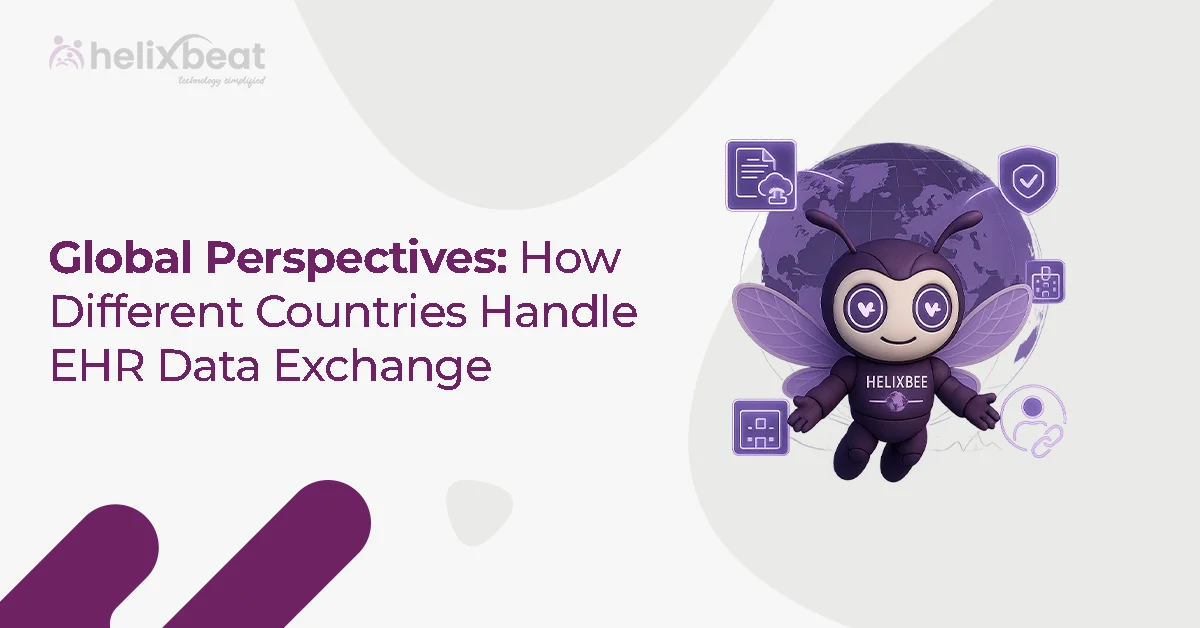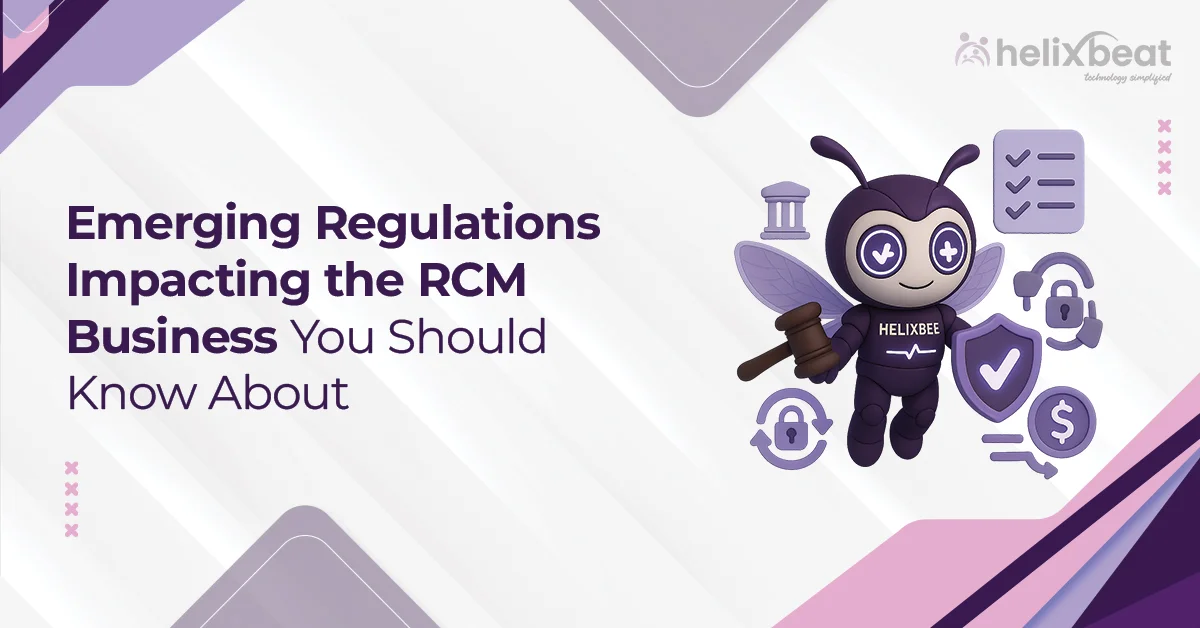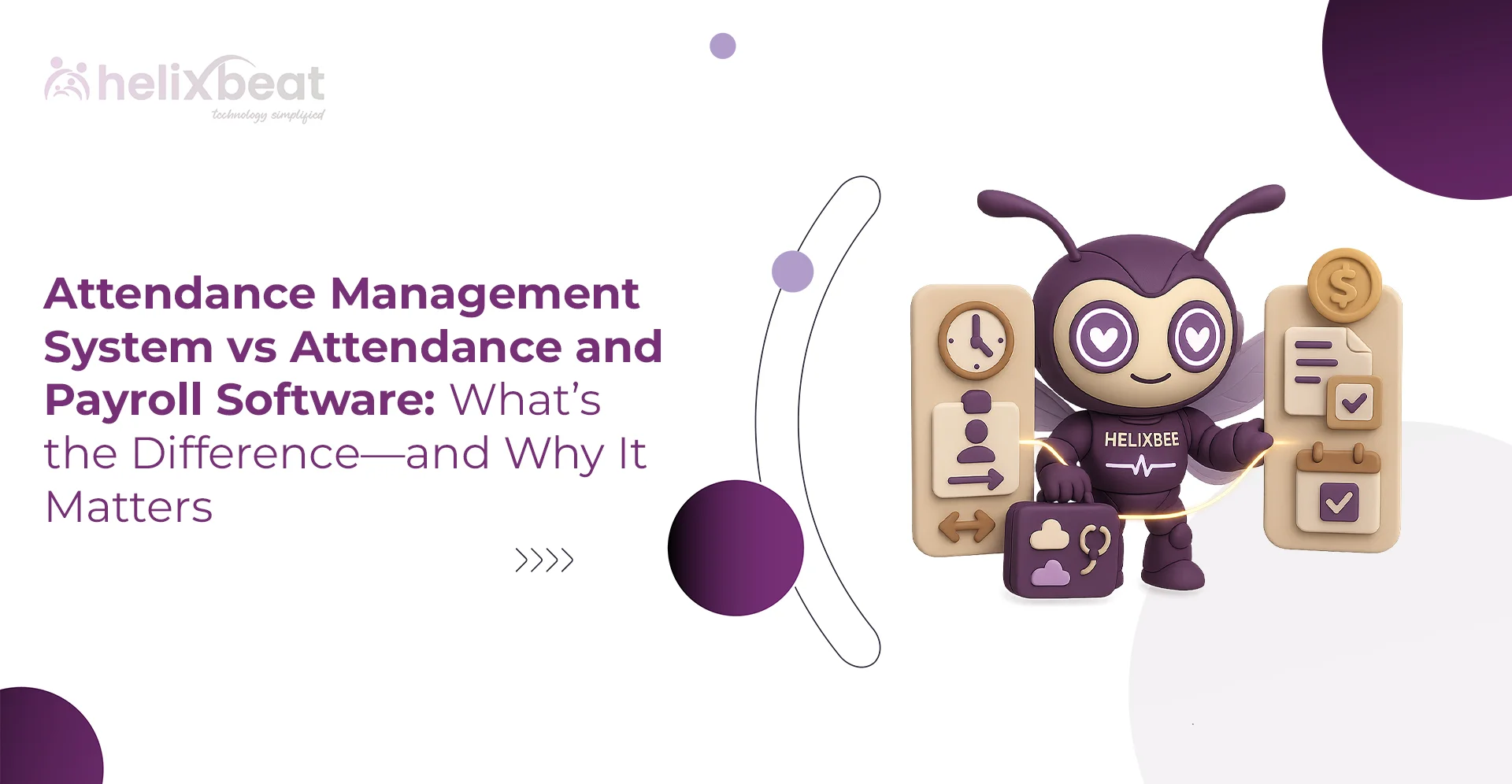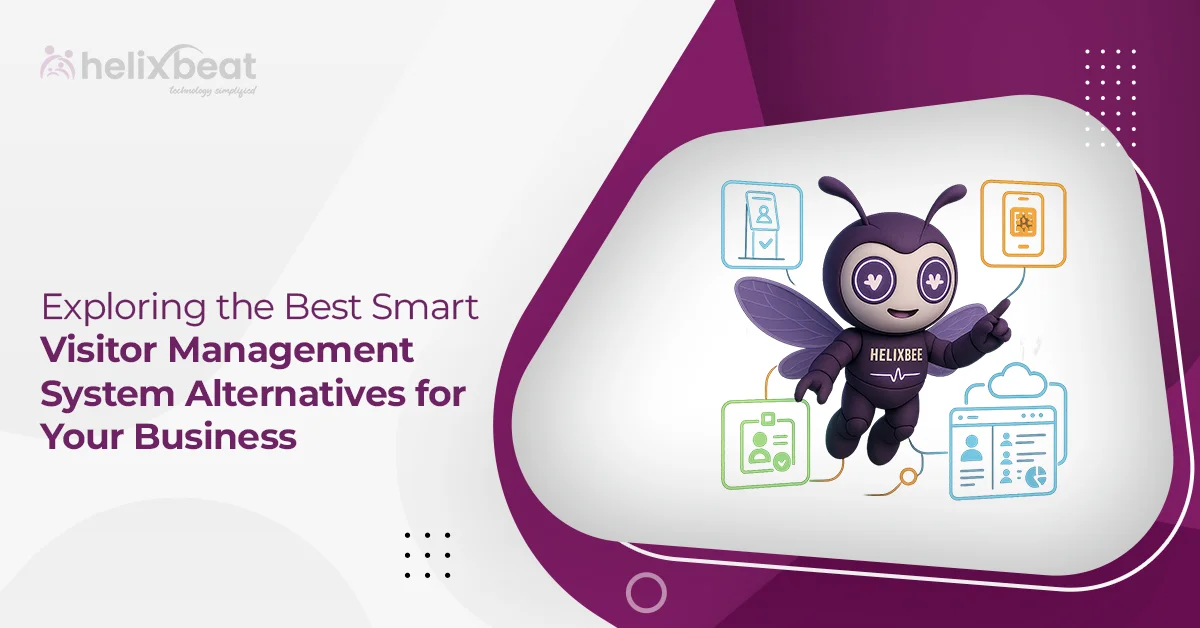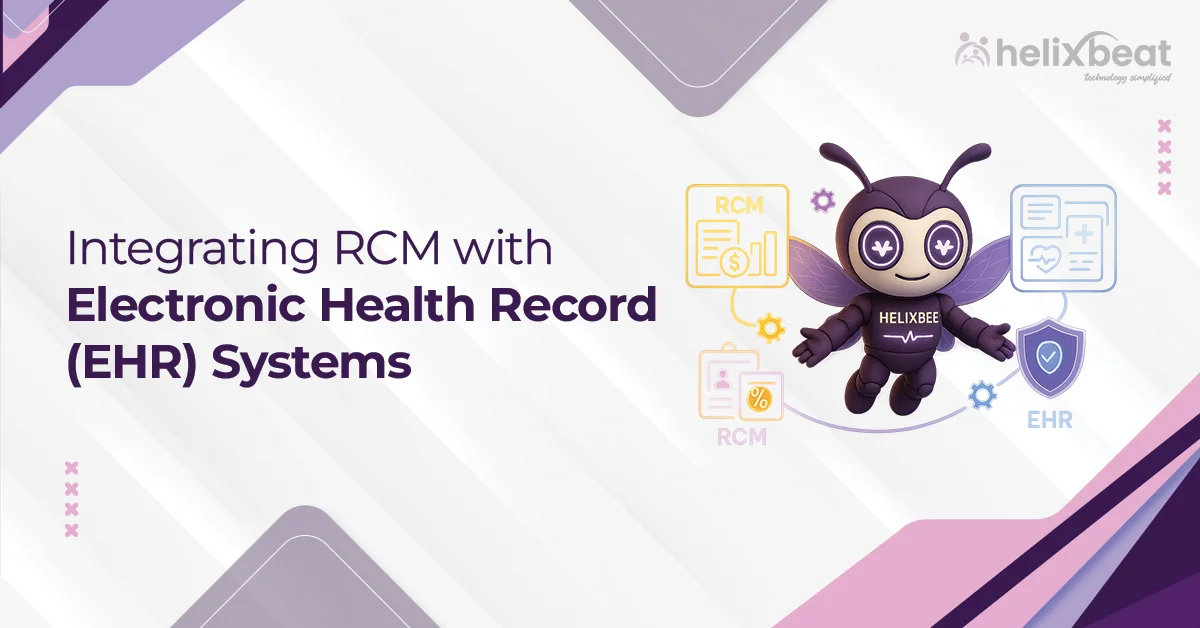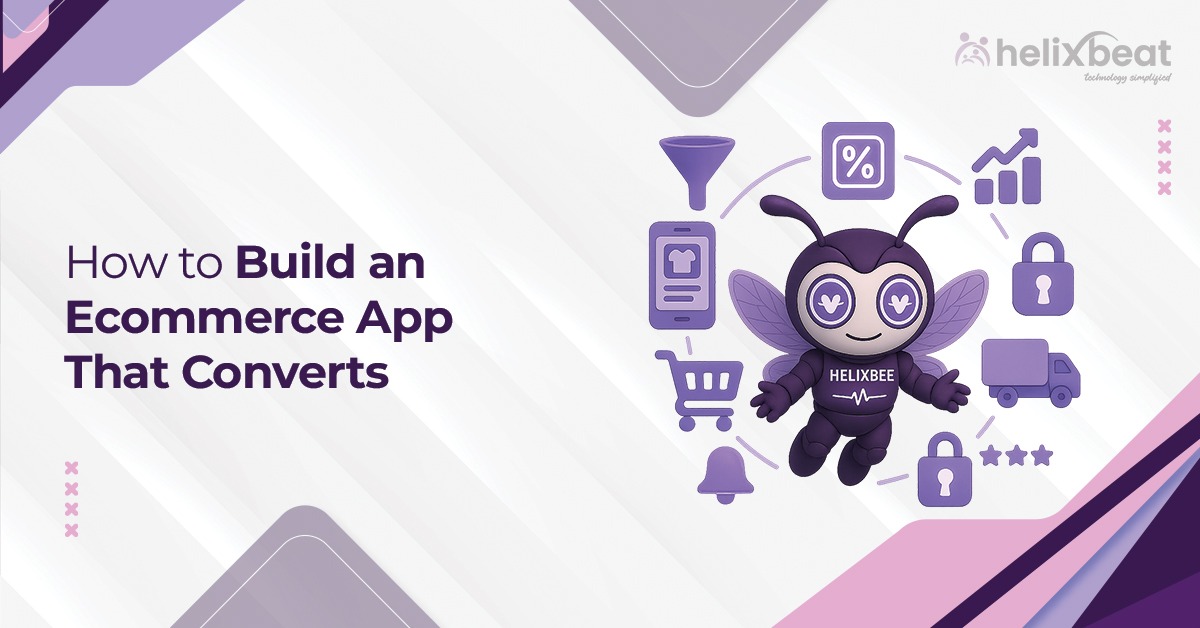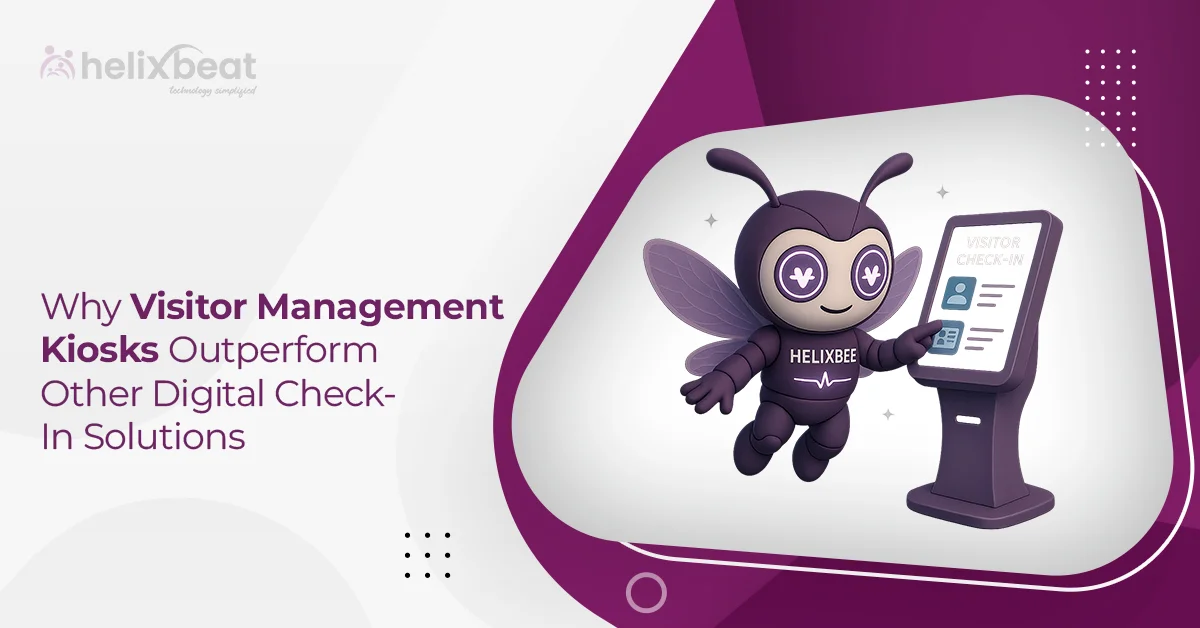If your front desk is juggling spreadsheets, your staff is chasing no-shows, and patients feel disconnected, you’re not alone. The real challenge isn’t attracting patients—it’s keeping them engaged and cared for, consistently.
In this blog, you’ll learn how well-designed healthcare CRM software can transform fragmented workflows into seamless experiences. From streamlining communication and automating follow-ups to boosting patient loyalty, we’ll also show how PULSE by Helixbeat turns your clinic into a connected, data-smart care engine. Let’s dive in.

Table of Contents
What Is Healthcare CRM and Why Should You Care?
If you are still using spreadsheets and disjointed tools to manage patient relationships, it may be time to explore the power of healthcare CRM.
A Customer Relationship Management (CRM) platform designed for healthcare helps clinics, hospitals, and telehealth providers centralize patient data, automate communications, and improve care delivery.
According to a report by Grand View Research, the global healthcare CRM market is projected to reach $26.2 billion by 2030. That growth is fueled by one thing: the need to deliver more personalized, connected patient experiences.
Core Features of Healthcare CRM Software
Robust healthcare CRM software is designed to meet the complex and dynamic needs of patient-focused organizations. It goes far beyond basic contact management, offering a cooperative system to engage, track, and support patients throughout their care journey.
A robust CRM for healthcare isn’t just about keeping track of patient contact info. It’s a complete suite that brings structure, automation, and intelligence to your practice:
Centralized Patient Records
- Combining demographics, history, lab results, prescriptions, and communication in one view
- Helps eliminate silos and create a complete patient journey timeline
Automated Communication Workflows
- Sends appointment reminders, birthday messages, and missed-visit alerts automatically
- Reduces manual work for staff and enhances consistency in communication
Multichannel Engagement
- Supports WhatsApp, SMS, email, and calls to reach patients where they are
- Improves patient response rates and satisfaction
Real-Time Activity Tracking
- Logs all interactions with time stamps and user IDs
- Provides visibility for clinicians and administrative staff alike
Easy Integration with EHR and Billing
- Seamlessly connects with existing clinical and financial systems
- Avoids double entry and improves operational efficiency
Advanced Role-Based Access
- Granular control over who can view, edit, or manage patient data
- Ensures HIPAA-compliant protection of sensitive information
Patient Segmentation and Targeted Campaigns
- Group patients by condition, location, or visit history
- Enables highly personalized health marketing outreach
Built-In Analytics Dashboards
- Offers visual reporting on patient engagement, conversions, and trends
- Supports faster, better decisions at the clinical and business levels
CTA: Book a demo of PULSE to discover how innovative CRM tools can transform your workflows.
How Do Healthcare CRM Systems Improve Patient Engagement?
Healthcare CRM systems aren’t just about addressing data—they’re about creating stronger, smarter connections with your patients. These methods transform passive care into active engagement across the entire patient’s journey.
Here’s how they do it:
Personalized Communication at Scale
- CRM platforms utilize patient history, preferences, and health data to send personalized messages, whether it’s appointment reminders, prescription refill notices, or lifestyle tips.
- This keeps patients informed and cared for even between visits.
Omnichannel Patient Touchpoints
- Whether it’s WhatsApp, email, SMS, or patient portals, CRMs reach patients where they are most comfortable.
- This multichannel approach enhances engagement, and fosters trust by offering patients a range of choices.
Timely Follow-Ups and Reduced Drop-Offs
- Automated workflows remind patients about follow-ups, tests, or ongoing treatment plans.
- These reminders reduce no-show rates and improve long-term health outcomes.
Real-Time Feedback Collection
- Integrated feedback tools enable you to capture satisfaction scores or concerns immediately after appointments, allowing your clinic to respond quickly and enhance services.
Segmented Engagement Campaigns
- CRMs can group patients by age, condition, or visit history and target them with relevant educational content or preventive check-up reminders, turning one-time patients into lifelong clients.
Benefits of CRM in Healthcare
Whether you’re running a solo clinic or managing a multispecialty hospital, the right CRM software can drive meaningful results across operations and patient satisfaction.
Here’s how a healthcare CRM adds real value:
Improves Patient Retention
- Automated follow-ups, appointment reminders, and personalized communication help reduce no-shows and encourage patients to return.
- Consistent engagement enhances loyalty, particularly for individuals with long-term care needs or chronic conditions.
Enables Personalized Care
- CRMs store detailed health histories, treatment preferences, and communication records, enabling the creation of customized treatment plans.
- Patients feel seen and heard, resulting in improved outcomes and increased trust.
Streamlines Front Desk Workflows
- Reduces the manual workload of scheduling, intake, and billing tasks.
- Staff spend less time chasing paperwork, and more time focused on patient needs.
Centralizes Communication
- Unified messaging across email, SMS, and WhatsApp from a single dashboard eliminates communication gaps, ensuring seamless communication.
- Enables faster response times and more explicit conversations.
Boosts Marketing and Outreach
- Targeted campaigns can be designed for specific patient segments, such as preventive care reminders for individuals with diabetes or regular checkups for children.
- You can track ROI and fine-tune your efforts in real-time.
Track Performance with Analytics
- Get insights into patient behavior, revenue trends, referral sources, and bottlenecks.
- Make data-backed decisions to grow your clinic.
Enhances Collaboration
- Multiple team members—from reception to physicians—can access patient timelines, reducing the risk of miscommunication.
What Does CRM Stand for in Healthcare and How Is It Different?
CRM in healthcare stands for Customer Relationship Management. Regardless, unlike its use in traditional industries, where customers are commonly buyers, in healthcare, the “customer” is the patient, who is constantly dealing with sensitive needs, complex histories, and high expectations for care continuity.
So, what makes CRM for healthcare distinct?
Focus on Patient-Centered Relationships
- Unlike generic CRM tools that drive sales pipelines or lead nurturing, healthcare CRM software is built to handle end-to-end patient journeys.
- This includes everything from appointment reminders and follow-up protocols to satisfaction surveys and personalized care recommendations.
Compliance with Healthcare Regulations
- CRM systems in healthcare must comply with data privacy laws, such as HIPAA, GDPR, and regional health data regulations.
- This means features like data encryption, access control, and audit logs are non-negotiable.
Integration with EMRs and HIS
- A CRM for healthcare must seamlessly integrate with Electronic Medical Records (EMR) and Hospital Information Systems (HIS) to avoid fragmented data.
- This creates a unified view of patient interactions, encompassing both clinical and administrative aspects.
Automation Tailored to Clinical Workflows
- Traditional CRMs automate sales tasks.
- Healthcare CRMs, on the other hand, automate appointment scheduling, patient education, vaccine reminders, and even care plan follow-ups, aligning perfectly with clinical operations.
Analytics Beyond Conversion Rates
- In retail, CRM metrics track sales and revenue.
- In healthcare, success is measured by patient retention, readmission rates, treatment adherence, and overall patient satisfaction, making the analytics module much more outcome-oriented.
How PULSE by Helixbeat Reinvents CRM for Healthcare Providers
Created as a Patient-Provider Unified Ledger, PULSE is more than just CRM—it’s a secure, integrated platform crafted to solve real problems in everyday care settings.
Digitally Sealed Patient Records
- Every patient action and update is securely logged with a timestamp, creating a reliable and traceable medical history.
- This boosts legal protection and accountability while maintaining data integrity.
Empowered Patient Access
- Patients can log in to view their own health records, appointments, prescriptions, and progress.
- This increases transparency and builds a sense of ownership in their care.
Intelligent Workflow Automation
- Routine tasks, such as appointment confirmations, follow-ups, and reminders, are fully automated.
- Your team regains valuable time, while patients receive consistent and timely communication.
Seamless System Interoperability
- PULSE seamlessly integrates with EHRs, labs, diagnostic tools, and third-party systems using FHIR standards.
- Real-time data exchange means care teams are always in sync—no delays, no data silos.
Robust Security Infrastructure
- With enterprise-grade encryption, flexible access permissions, and mobile-first security, your patient data remains secure at all times.
- Built to align with HIPAA and healthcare data protection regulations.
Insightful Visual Dashboards
- Real-time dashboards let you track engagement, treatment outcomes, and marketing performance.
- Also simplifies compliance reporting with built-in templates for MIPS and ONC.
Integrated Financial Management
- PULSE supports everything from patient billing to insurance claims in one place.
- Say goodbye to disconnected revenue systems and hello to faster, cleaner billing cycles.
Wrapping Up
Tools like PULSE healthcare CRM are becoming indispensable. By streamlining operations and providing a unified view of patient interactions, PULSE helps your team stay efficient, responsive, and focused on what truly matters, delivering high-quality care. It keeps patients engaged and simplifies internal workflows without adding to your team’s workload.
Book your personalized demo of PULSE and discover how effortless patient-first care can be.
FAQs
- What does CRM stand for in healthcare?
CRM stands for Customer Relationship Management but focuses on patient relationships in healthcare.
- What are the types of CRM?
Operational, Analytical, Collaborative, and Strategic.
- Is CRM software compliant with HIPAA?
Good CRM software for healthcare, like PULSE, is built with HIPAA compliance.
- Can CRM replace EHR systems?
No, CRMs complement EHRs. They manage engagement, not clinical records.
- How do I choose the best CRM for my clinic?
Look for security, integrations, ease of use, and automation features.
- Can CRM be used in telehealth?
Absolutely. CRM supports remote patient management, follow-ups, and communication.
- How does CRM improve marketing?
It segments patients for personalized campaigns and tracks conversion.
- What are the cost benefits of using a healthcare CRM?
Higher patient retention, less admin time, and better ROI on campaigns.
- Is PULSE by Helixbeat scalable?
Yes. PULSE supports small clinics to large hospitals with flexible modules.
- How do I get started with PULSE?
Just book a free demo and explore how PULSE fits into your workflow.






